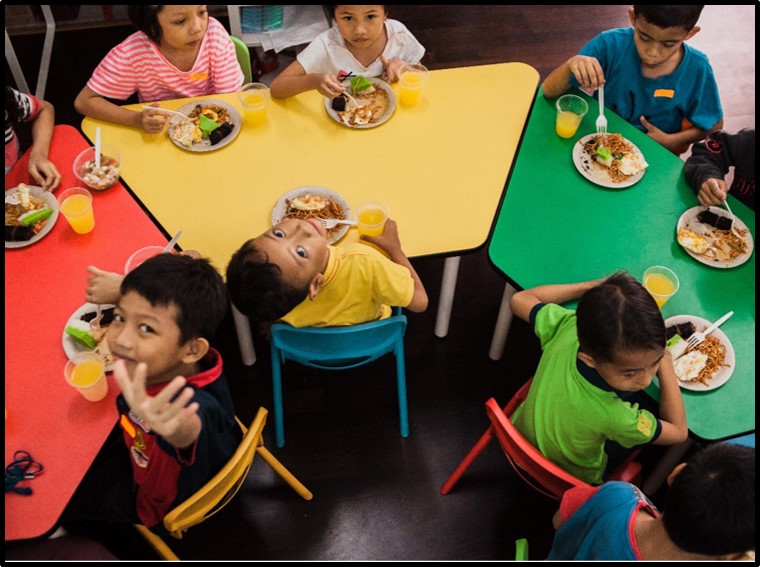Written by Ayesha Maria Faiz
Children from low-income families; disabled people; poor single mothers who have families to care for – when thinking of helping these groups of people, most tend to have a knee jerk reaction of giving or donating food to these families. No, it would not be wrong to give food, but it may not necessarily be something they need. Often times, it is what we think they need. So, what is it that they really need? All you have to do is ask – ask them directly, “How can we help you?” It is safe to say that you would be surprised to hear: the answer is never ‘food’.
I had the honour of sitting down and speaking to three of the board of directors of Suriana Welfare Society Malaysia (Suriana) that protects children in crisis. Suriana derives from ‘Suara Rintihan Kanak-Kanak’ which translates to ‘voice for children’. As the name suggests, Suriana helps children that come from homes of abuse, be it physical or drug-abuse, but they also assist disabled people and single mothers.
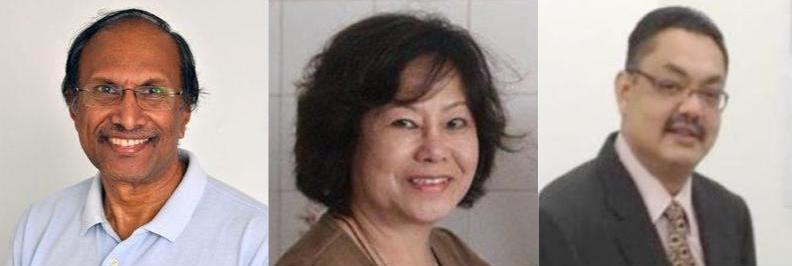
With a capacity of almost 30,000 people, Desa Mentari has “one of the highest number of social ills” James Nayagam, Chairman of Suriana tells me. Desa Mentari is one of the many ‘Projek Perumahan Rakyat (PPR)’ projects. Here, they set up a community centre within Desa Mentari, precisely at Block 5 to counter social ills found within the area. They set up their first Play And Learn (PaL) Centre, there. It is a centre where children can be safe when waiting for their parents to pick them up, while also learning some basic education. At the PaL Centre, the children learn through guided play because this way they are able to learn more with subjects such as music, traditional dance, and certain recreational activities. However, they also follow a syllabus when learning English, Bahasa Malaysia and Mathematics.
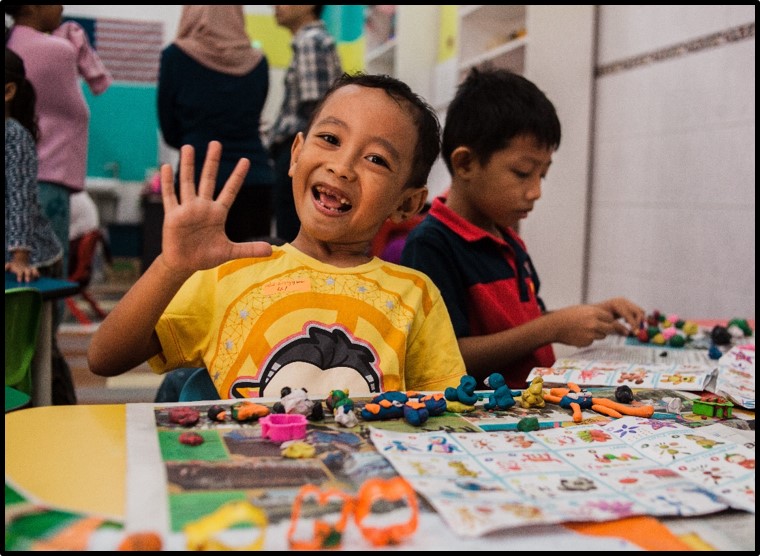
Other than school subjects, Rachel Ho, the Executive Director, explains how Suriana makes an effort to inculcate certain values, like discipline and manners, into the children’s lives. The children are taught how to greet teachers and visitors, and when eating, to wait till everyone has been served. A monitor is also appointed every week and during meal times, he or she will say a small prayer before everyone begins eating. Smiling, clearly proud with these children, Rachel says “We eat as a family now”. These lessons start at 3 in the afternoon to “accommodate those that come back from school” and whose parents are not around. This way, the children will not be alone in their homes, which could potentially lead them to be exposed to social ills around the area. Learning ends at about 7pm, but as there is a heavy emphasis on the children’s safety at Suriana, the PaL Centre only closes when the last child is picked up by the parent.
Suriana also helps to register the disabled, be it child or adult. Disabled people or ‘orang kurang/kelainan upaya (OKU)’ as they are referred to here in Malaysia, have 15 benefits that they get from their OKU Card. Life should be made easier for them with this card, and yet there are so many who are not registered and do not have the card. I asked James, whether the OKU received the card immediately upon registration. The Chairman simply shook his head and said “Interesting, isn’t it?”, clearly disappointed with the system in which disabled people have to work. Nadia is a 30-year-old woman who is deaf, blind and mute. The Social Welfare Department declined to provide her with an OKU Card because they wanted to know “the cause of her blindness”. Rachel went to the Social Welfare Department and fought for the card for Nadia and managed to get it. For 30 years she has been living like this and for “30 years the parents have tried and couldn’t get anything,” Sri Ganesh, Director of Fundraising, states as he recalls the struggles Nadia and her family faced. He explains that even though Suriana started of protecting children in crisis, “when a case like [Nadia’s] comes up, you can’t say no”. This shows that Suriana will do all they can to aid the needs of those that are underprivileged. In one block of Desa Mentari, there are 15 OKU children, some of which have not seen the light of day, and there are even parents who have not been informed on what their children can receive. Suriana helps these children get registered and get the OKU Card so they can receive the “host of privileges” that is available for them.

Suriana also has income generating projects for poor single mothers. These projects allow mothers to earn a decent living without having to leave their homes in fear of their children’s safety. In one case, there was a mother who was afraid to go out for work as her husband would come back drunk and “insists on her going to the bedroom” Ganesh explains. Therefore the mother was concerned that should she leave for work, and her 15-year-old daughter is home when the father comes back, he might try to go after the young girl. The thought of that alone is horrifying. Hence if the mother works from home, she can protect her child and at least earn some income. The society found that the abuse is reduced tremendously and sometimes stopped altogether when the mother becomes “a partial breadwinner”.
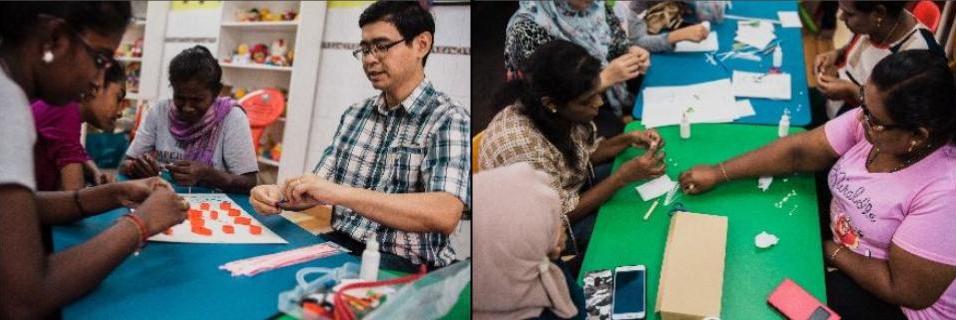
These mothers are currently taking part in an income generating project, the 2020 Calendar Project, that Suriana has prepared for them. They learn from a quilling master who comes to teach them the art of quilling. The mothers, equipped with a brand new skill, make handcrafted patterns that are beautifully placed on each page month of the calendar. At the end of each month, the mothers get paid and they are satisfied with that because “for them not to go anywhere, but to sit in the house and earn is [in itself] money”. James went on to explain that they want families to remain together and ensure mothers are able to be with their children. By giving the mother work that can be done from home, the mother is able to be around her child and care for him or her, which correspondingly “prevents badhats from preying on” the child. Thus allowing the child to grow up “normally” and have an “uninterrupted” childhood. Therefore, the mothers need people to buy the calendars as that is their source of income and is the key to their children’s safety. To get a handmade 2020 calendar, you just need to give a minimum donation of RM50, and all proceeds go to helping the single mothers and keeping their darling children safe.
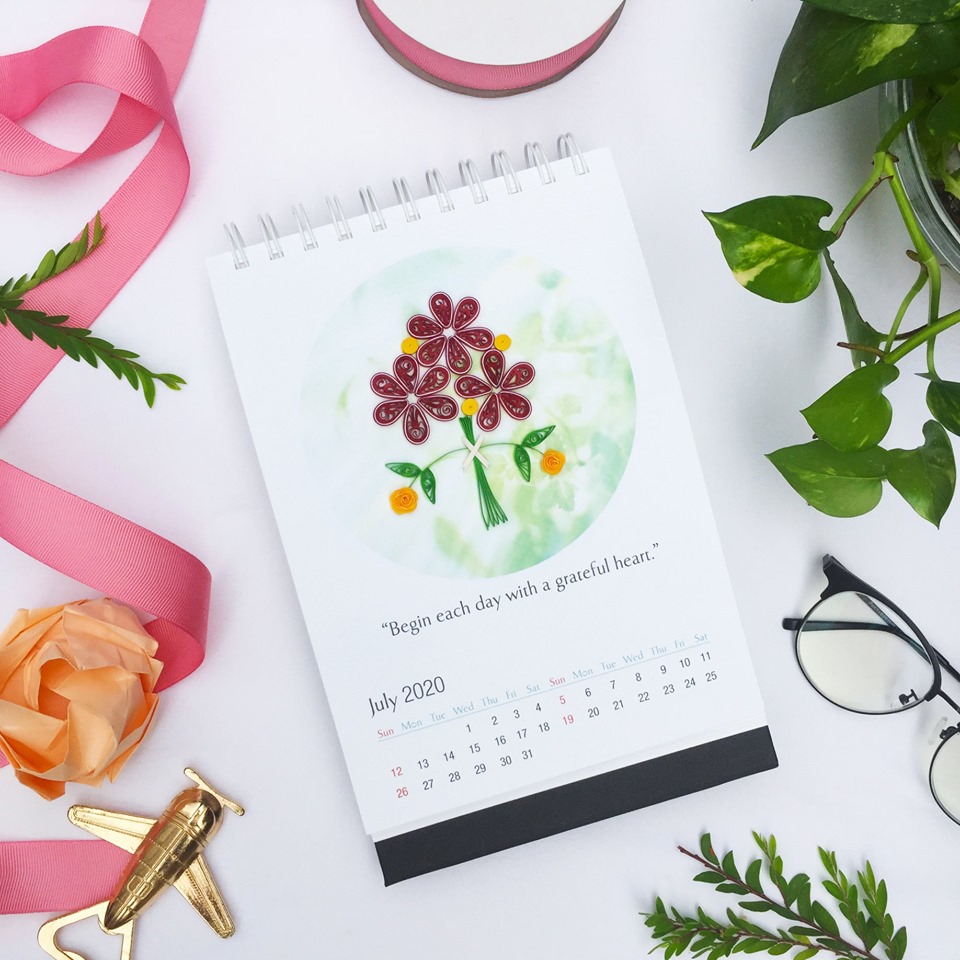
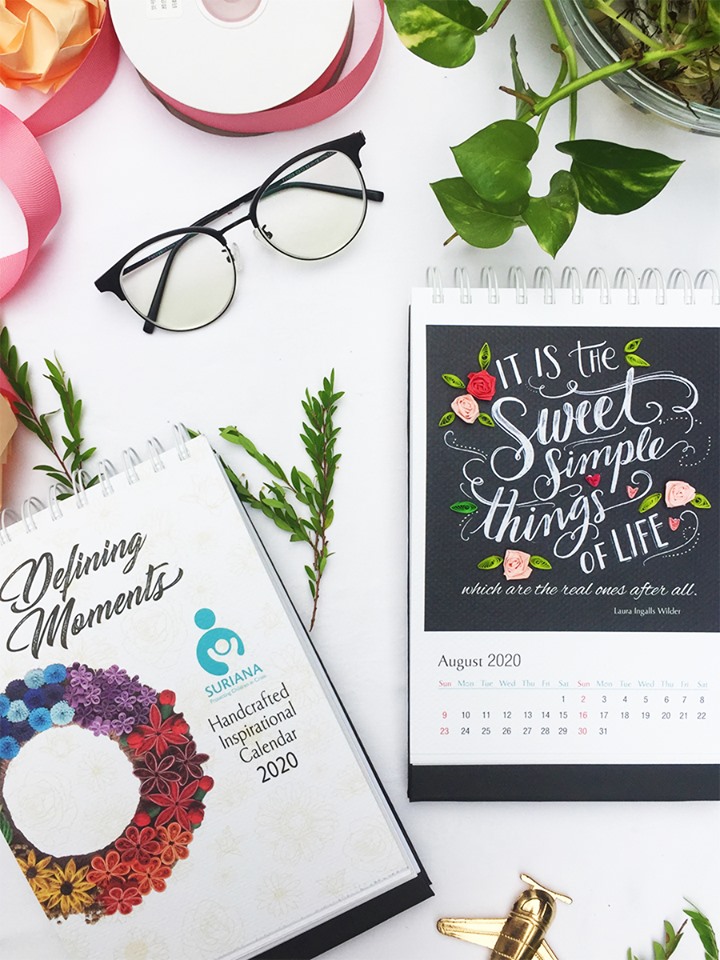
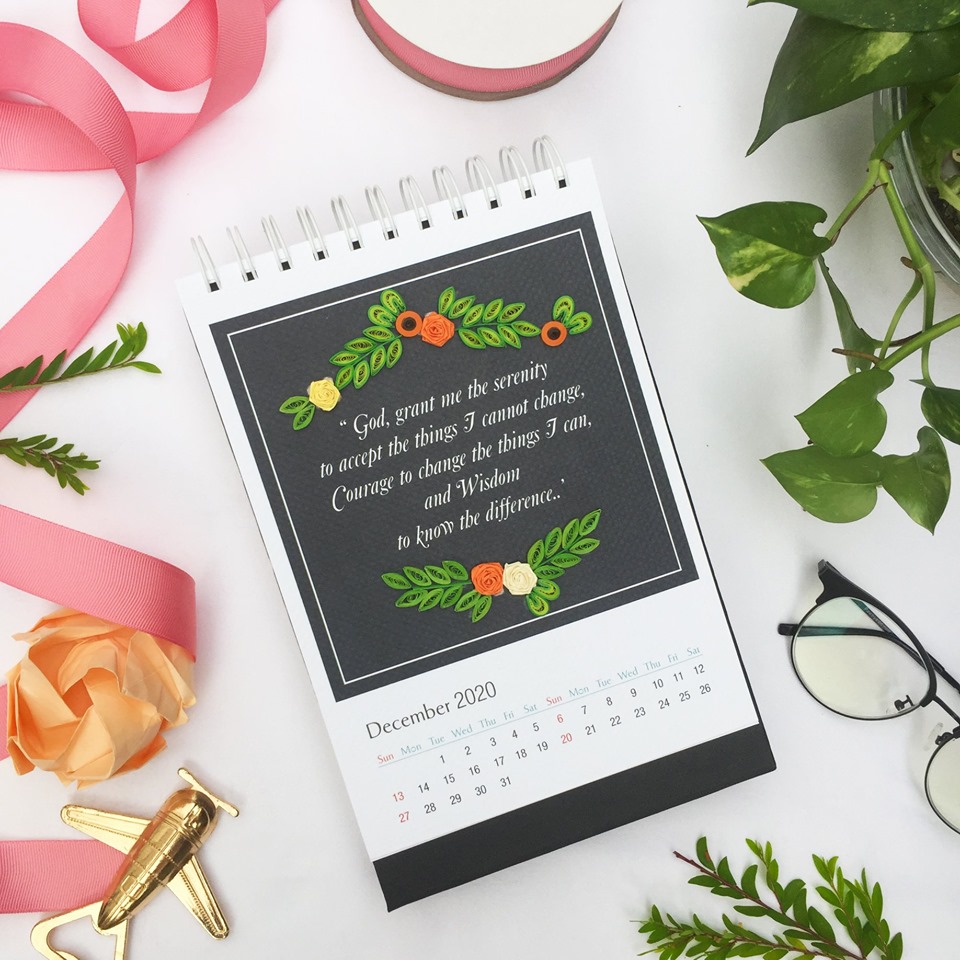
Suriana is in need of volunteers, funds, donors and of course, the purchasing of the calendars. They require volunteers to help run projects and assist wherever help is needed. However, more importantly, they need funds to carry out the projects. They are hoping to open more PaL Centres in various PPR Flats to help more families and their children. Suriana also needs funds to have staff aid the disabled people. If they can use a volunteer to help, they will use the volunteer because it saves money, but sometimes they are unable to use volunteers as permanent staff are needed. Ganesh elaborated that some appointments a disabled person has to go for cannot be postponed if the volunteer is unavailable that day, hence paid staff are needed as they will definitely be there. All donations that go to Suriana are not only tax exempted, but also strictly controlled. “We believe in credibility, accountability, [and] transparency,” said James, “we have advisers … and we also have strict procedures as to how the money should be used”. As everyone in Suriana is so heavily involved in assisting the community, they barely have any time to try and raise funds. They intend to have an OKU hotline, which has never been done before in Malaysia, that will allow anyone to call in to ask for assistance. “We’d love to help as many as possible” James said, as he urged me to include his and his colleagues’ contact details in my article, for Suriana is the change that is helping these communities, with a 30% reduction in violence being a clear indicator that what they are doing is making a significant difference.
“Change comes when we are in the community, not waiting for people to come to [us]”
– James Nayagam, Chairman of Suriana Welfare Society Malaysia
The main concern of these disadvantaged communities is not the lack of food. They are concerns neither you nor I would have thought of: writing a letter of application, getting referrals to the hospital, registering for an OKU Card let alone being informed on the benefits that disable people have. These are small things that we do not think of because we have the privileged mindset of ‘Google-ing it’. However, Suriana tells these families “we will journey with them if they have a child who is disabled and the child needs assessment or medical treatment,” says James. They are one of the few non-governmental organisations who actually set up a community centre to work with the community as opposed to a ‘touch-and-go’ approach taken by many. They do their best to aid these families with what they need, but they do not stop nor let go there. Suriana is constantly trying to move these families to the next level. James states firmly, “That is what they need”.
If you would like to help, whether it is in the form of volunteering, donating or even buying one of the 2020 calendars, you may contact any of these numbers:
Suriana Welfare Society Malaysia – 1300 88 2200 / [email protected]
Website: www.suriana.org
Facebook: facebook.com/surianawelfaresociety
James Nayagam (Chairman) – 012 314 1100 / [email protected]
Rachel Ho (Executive Director) – 012 211 4444 / [email protected]
Sri Ganesh (Director of Fundraising) – 016 335 2477 / [email protected]
All photos are credited to Suriana Welfare Society Malaysia

